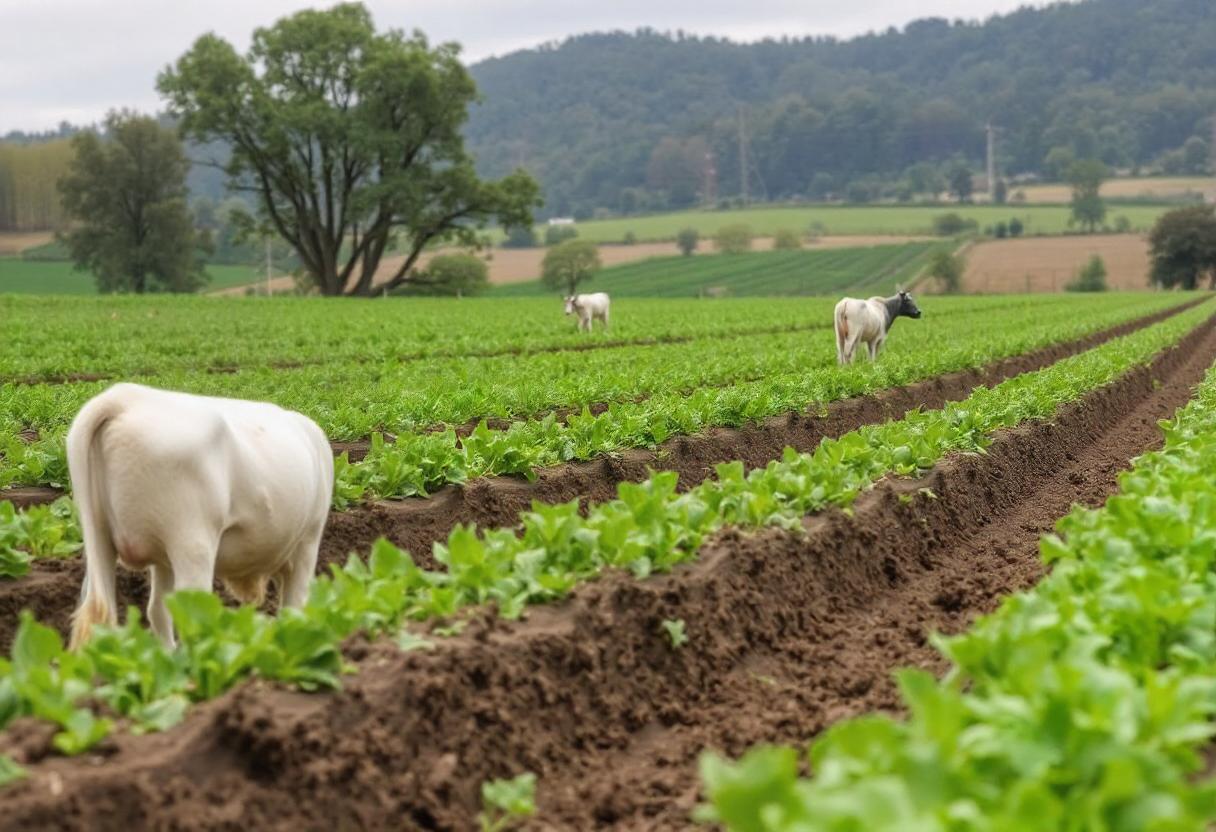
Nutrient management is a critical component of sustainable agriculture, ensuring that crops receive the right amount and type of nutrients for optimal growth while minimizing environmental impacts. The practice involves balancing the input of nutrients with crop needs and environmental considerations, promoting healthy soil, efficient use of fertilizers, and increased productivity.
The Importance of Nutrients in Crop Growth
Crops require various essential nutrients for proper growth, which can be broadly categorized into macronutrients and micronutrients. Macronutrients, including nitrogen (N), phosphorus (P), and potassium (K), are required in larger quantities, while micronutrients like zinc, iron, and copper are needed in smaller amounts. These nutrients play vital roles in plant development, from chlorophyll production to root formation and overall plant health.
Sources of Nutrients
Nutrients can be supplied to crops through various sources, including organic and inorganic fertilizers, soil amendments, and natural processes such as nitrogen fixation. Organic sources, such as compost, manure, and cover crops, not only provide essential nutrients but also improve soil structure and microbial activity. Inorganic fertilizers, on the other hand, are manufactured to supply precise amounts of nutrients but require careful management to avoid overuse and environmental harm.
Nutrient Cycling in Soils
Soil nutrient cycling is the process by which nutrients are taken up by plants and returned to the soil through decomposition and organic matter. Effective nutrient management depends on maintaining this cycle, ensuring that nutrients are replenished and made available for future crop use. Practices like crop rotation, cover cropping, and conservation tillage can enhance nutrient cycling by maintaining soil organic matter and preventing nutrient loss.
Soil Testing and Nutrient Balancing
Soil testing is an essential tool in nutrient management, providing farmers with information on the nutrient content and pH levels of their soils. Based on these results, farmers can develop nutrient management plans that ensure the right balance of nutrients is applied to meet crop needs without causing excess runoff or leaching into the environment. Regular soil testing helps optimize nutrient applications and reduce the risk of over-fertilization.
Fertilizer Application Methods
The method of applying fertilizers plays a significant role in nutrient management. Broadcasting, banding, foliar application, and fertigation are some of the common methods used to deliver nutrients to crops. Each method has its advantages depending on the type of crop, soil conditions, and the specific nutrient being applied. For example, banding places nutrients directly in the root zone, improving nutrient uptake efficiency.
Precision Agriculture in Nutrient Management
Precision agriculture technologies, such as GPS-guided equipment, drones, and soil sensors, allow for more targeted and efficient nutrient application. By using real-time data on soil and crop conditions, farmers can apply the right amount of nutrients at the right time and place, reducing waste and enhancing crop yields. Precision agriculture also minimizes the environmental impact of nutrient applications by reducing the risk of runoff and nutrient loss.
Nutrient Management and Environmental Sustainability
Proper nutrient management is essential for protecting the environment. Excessive or improper application of fertilizers can lead to nutrient runoff, water pollution, and soil degradation. Nutrient management practices such as cover cropping, buffer strips, and reduced tillage can help reduce these risks by improving nutrient retention in the soil and preventing erosion. Sustainable nutrient management practices contribute to the long-term health of agricultural ecosystems.
Integrated Nutrient Management
Integrated nutrient management (INM) combines organic and inorganic sources of nutrients to optimize crop production and soil health. INM aims to reduce dependency on chemical fertilizers by incorporating organic matter, such as compost or green manure, into the nutrient management plan. This approach promotes soil fertility and microbial activity while reducing the environmental impact of fertilizer use.
Challenges in Nutrient Management
Despite its benefits, nutrient management faces several challenges. Farmers must balance crop needs with environmental considerations, often under economic constraints. Weather patterns, soil variability, and changing market demands add complexity to nutrient management planning. Additionally, the overuse of synthetic fertilizers in some regions has led to soil degradation, water pollution, and loss of biodiversity, highlighting the need for more sustainable practices.
The Future of Nutrient Management
Advances in technology, including digital farming tools and biotechnology, offer new opportunities for improving nutrient management. These innovations can provide farmers with more accurate data, allowing for fine-tuned nutrient applications that enhance both productivity and sustainability. As agriculture faces increasing pressure to feed a growing global population, nutrient management will play a vital role in achieving higher yields while protecting the environment.